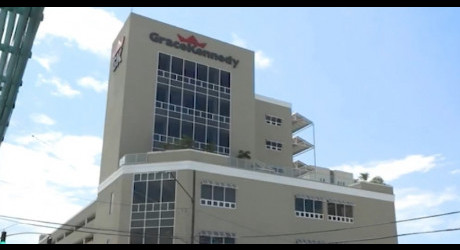A probe by the Auditor General has uncovered major weaknesses in the motor vehicle policy of the Jamaica Constabulary Force (JCF) which, according to the latest report, is wasting millions of taxpayer's dollars, and possibly creating opportunities for wide-scale fraud.
The report, tabled in Parliament Tuesday, has put the acquisition, management and repair processes under intense scrutiny, with a suggestion that prosecution may be on the horizon.
Among the key findings of the audit was that for the period of review the JCF did not monitor the operational efficiency of its fleet, had a weak inventory management system, and had a fleet management policy that was inadequate.
The report showed that inadequacies in the motor vehicle master inventory prevented the Auditor-General's Department from determining the exact size of its fleet.
For example, no engine numbers were recorded for 358 vehicles, and 40 had no chassis numbers recorded.
Consequently, of the 710 motor vehicles purchased during the period April 2007 to March 2010 the Auditor-General could not identify 194 on the inventory list.
The department could not trace J$323 million worth of service parts from the Force's inventory division, because of a general lack of transparency, accountability and oversight of repairs and maintenance activities.
Also in relation to repairs, the department acknowledged that the JCF had concerns with some bills that were submitted to its garages, where contractors’ prices were significantly higher than market price.
In addition, bills could not be honoured as the relevant officers had no knowledge of the services said to have been provided.
One garage, for example, collected J$1.1 million from January 2008 to June 2012 from various persons to repair 63 JCF motor vehicles involved in accidents.
However these funds were not accounted for in the JCF’s financial records although the vehicles were repaired using the Force’s facilities, utilities and equipment.
This contravened Force guidelines, and although the funds were said to be used to buy parts and materials for the repairs, there were no supporting documents to back this claim.
Added to that, the department concluded that there was a general lack of control over the transfer of parts from one vehicle to another.
The JCF could not account for 306 engines and 1,271 miscellaneous parts said to have been removed from 293 vehicles, which were disposed of between April 2007 and March this year.
Improper storage of these parts and the absence of security at some of the garages, have cast doubt on whether the JCF actually benefited from their use.
The Auditor-General's Department explained that it deliberately left out some of its findings from the final report, in the interest of national security.
It stated that the Ministry of National Security believed some of the information; if made public, could compromise an ongoing investigation.









 All feeds
All feeds







